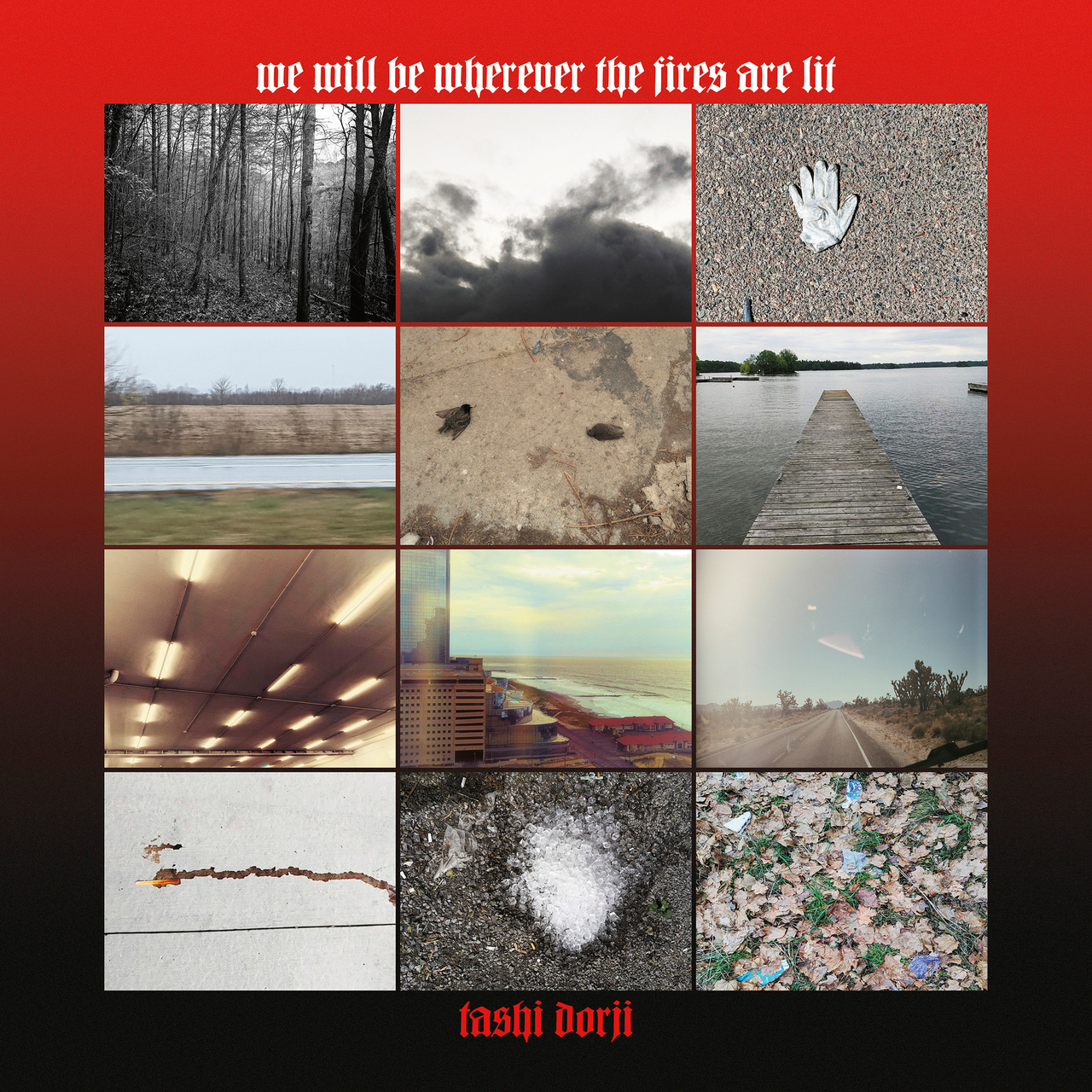Tashi Dorji may seem an unlikely voice of American unrest. Born in the peak-bound Kingdom of Bhutan, touted in the West for its Edenic emphasis on Gross National Happiness, Dorji left in 2000 to attend a tiny liberal arts college in the ancient mountains of North Carolina. He has mostly remained there, living in a remote Appalachian holler far removed from his adopted country’s crucibles of media or mass protest. What’s more, Dorji is an improvising solo guitarist, wrenching real-time compositions that ride divides between chaos and control, terror and beauty from steel strings that seem to find entirely novel tongues and tones beneath his fingers. Dorji, then, invokes an enduring canard of arts criticism: Can abstract art—and instrumental music, precisely—be political, or say anything explicitly, without so much as a word?
Dorji’s affirmative answer—and the urgent questions his music raises about the ways we live, fight, and die—has never been more emphatic or resolute than on we will be wherever the fires are lit. Dorji has recorded and released a massive amount of material during the last two decades, a scattershot blast of cassettes, compact discs, collaborations, splits, and LPs divided among more than a dozen labels. But he has the ability to focus his fire, too, to save his clearest and most cohesive work for the biggest megaphone he can muster. In his case, that is Drag City, the Chicago bastion behind his most powerful new works, as well as select reissues from his enormous archive. Arriving amid long-overdue civil-rights reckonings embedded within an international pandemic, 2020’s Stateless, his Drag City debut, was a permission slip to reject every inherited American myth. He nodded at the ways one might expect solo guitar music to sound, then split them into pieces—“Statues Crumble, Heroes Fall,” as he aptly put it in the title of its gnarled standout.
Released amid another descent into the unknown, its follow-up, we will be wherever the fires are lit, often feels like fight music for battles that may have no end. There is a recognizable violence to many of these songs, with Dorji slashing, bending, pounding, and scraping his strings as if they are a safe sink for terminal anxiety and aggression. Dorji also finds time here to express joy and love, to at least imagine the things we will still covet after the devastation is done, if it ever is. Dorji is an exceptional instrumental technician, his playing bundling a lifetime of heavy metal, post-punk, blues, and noise into five-minute bursts. But more importantly, no other instrumentalist is offering critiques of the United States—or reminders of why they matter—as trenchant and riveting as Dorji, the new friend who walks into your house for the first time and confidently tells you to remodel everything.
